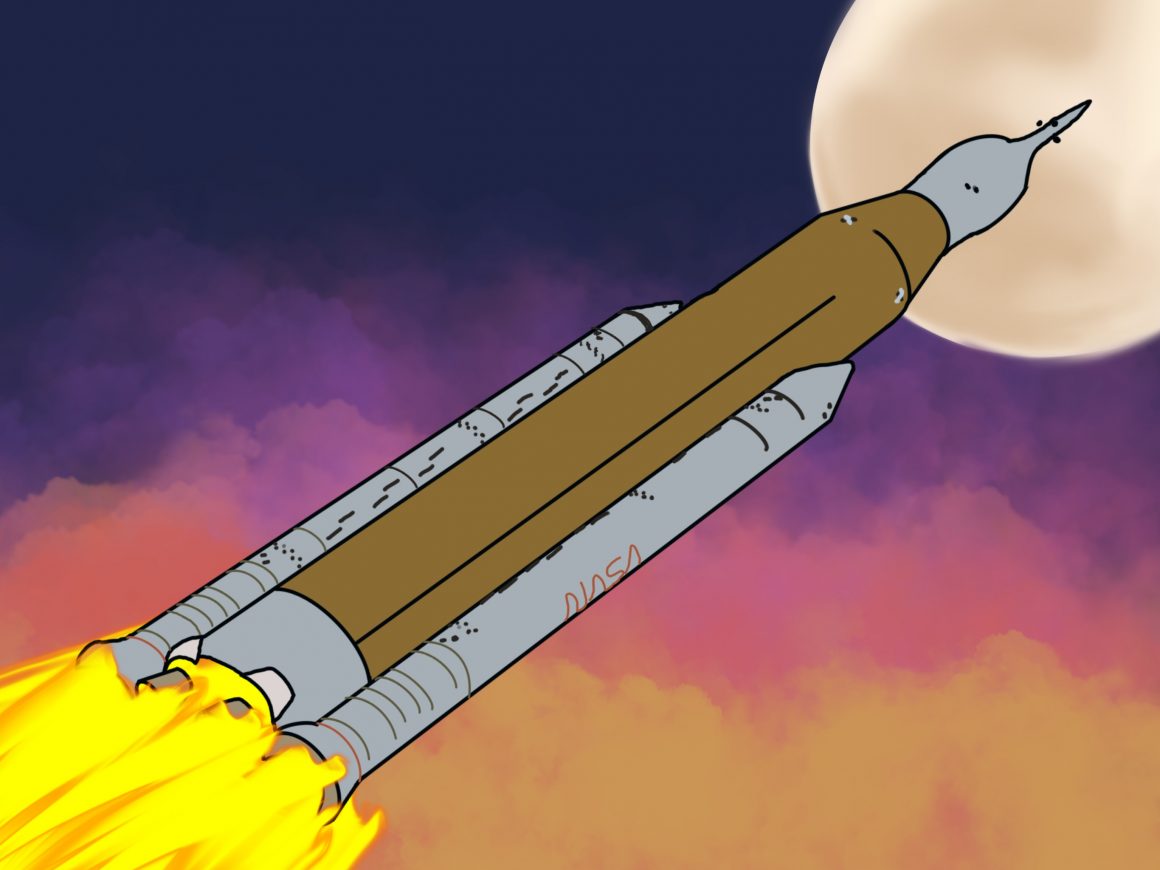
Artemis I launch postponed and the history behind NASA’s mission
By Rodrigo Verney, September 30 2022—
Artemis I has been as important of a mission as it has been controversial. The long-awaited launch has been delayed once more. Even though Canadian astronaut David Saint-Jacques agrees that this was the right move to make, public unrest continues to steadily increase and the years of budget cuts and distrust of NASA as an organization are starting to seriously threaten the hegemony that the agency upheld for 51 years now. Deadlines are closing in and threats to the budget being shifted towards private American space companies are more present than ever. Around so many expectations and letdowns, it becomes almost a necessity to take man to the moon again.
NASA has been a household name ever since it rose from the ground to help Neil Armstrong take one small step in Earth’s satellite. It won the hearts of everyone glued to the TV that day. Setting the bar for itself higher than ever and essentially kickstarting the end of one of the biggest ideological disputes of the last century. Hence, the question on everyone’s mind remains the same. How can one organization fall so rapidly from grace? That answer will have to come with a little journey through NASA’s history.
What most people don’t understand about NASA’s first ascension is that it wasn’t as pretty as history makes it out to be. Their start at the end of the 1960s came from a necessity more than a natural movement towards the study of astronomy as some might make it up to be. The need to match the USSR’s rapid scientific advancements gave rise to a devoted budget for space exploration. Things were quickly emerging for the newly assembled team of astronomers, scientists and space explorers. Unfortunately, that wasn’t enough to beat the Soviet Union’s ever-growing conquests. They were the first to put up a satellite in outer space and to do the famous “Spacewalk” just four years before America’s trip to the moon.
NASA would need more than to naturally develop to match the Soviets’ intensity. As the conflict was gaining popularity and the American people were starting to show interest in beating the Soviets, NASA’s budget skyrocketed from less than 0.5 per cent of the federal budget to 4.5 per cent in an almost 10-year span. The stakes got even higher in the few years prior to the moon mission itself. The need for a successful mission was so big that it led to the United States granting them a “get out of jail free card.” So just like that, NASA had a $5.9 billion ($54 billion in 2022) budget and full political immunity. Enshrined by so many perks, NASA achieved one of humanity’s biggest conquests.
Little did they know that their golden era would be short-lived. That budget was too unsustainable to remain, so they had to lower the bar accordingly. Everyone expected a budget cut, but no one would believe how far they would take that. By 1970 they suffered a loss of more than half of their budget. That by itself is already hard enough to handle. You don’t just go from $5 billion to $3 billion without some major layoffs and de-escalating production. They also lost their political immunity which was ultimately for the better. When everything seemed bad, however, it somehow got worse. The 2008 market crash coupled with a constant increase in the military budget made it impossible for NASA’s budget to uphold a constant value and remained in a steady decline ever since.
That is why Artemis I, II and III mean so much now. This may be NASA’s redemption mission. The moment it will turn a whole generation into believers again. Even after facing so many setbacks, both in the path that got us here and in the laugh mission itself, it will become a worthy endeavour even with more delays if they are to happen. It will be a lesson for every person that dreams about the stars. They’ll be putting the first woman and people of colour on the way to sink their feet on lunar soil. Empowering them with a simple enough step, but taking a huge leap in the right direction.
